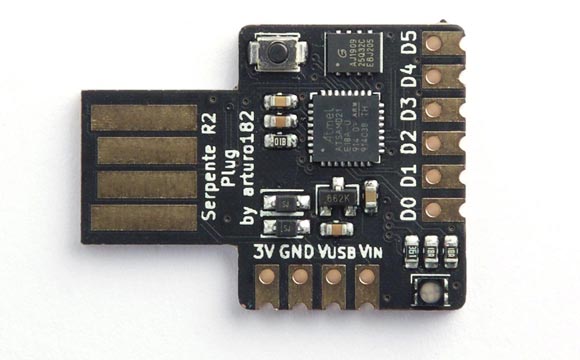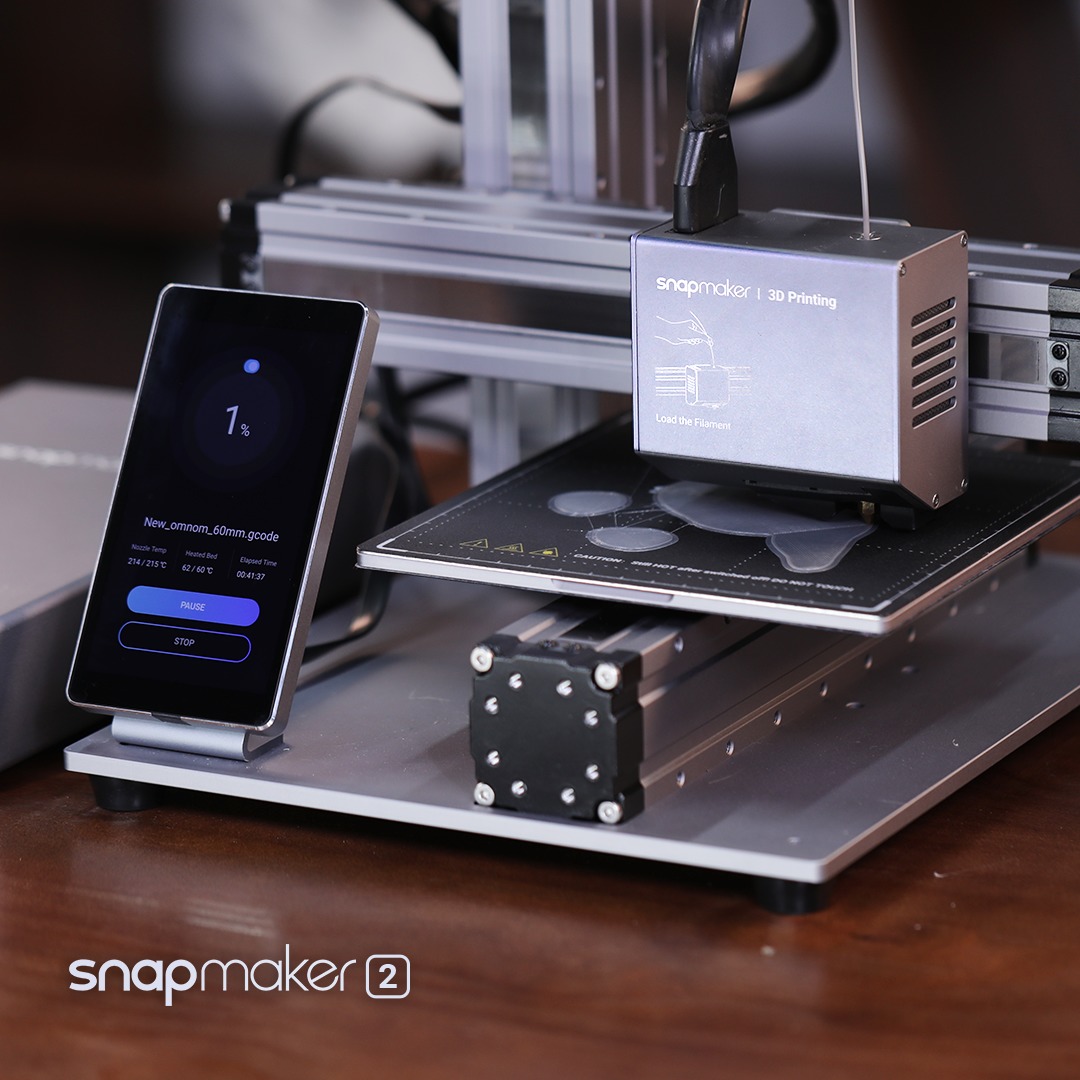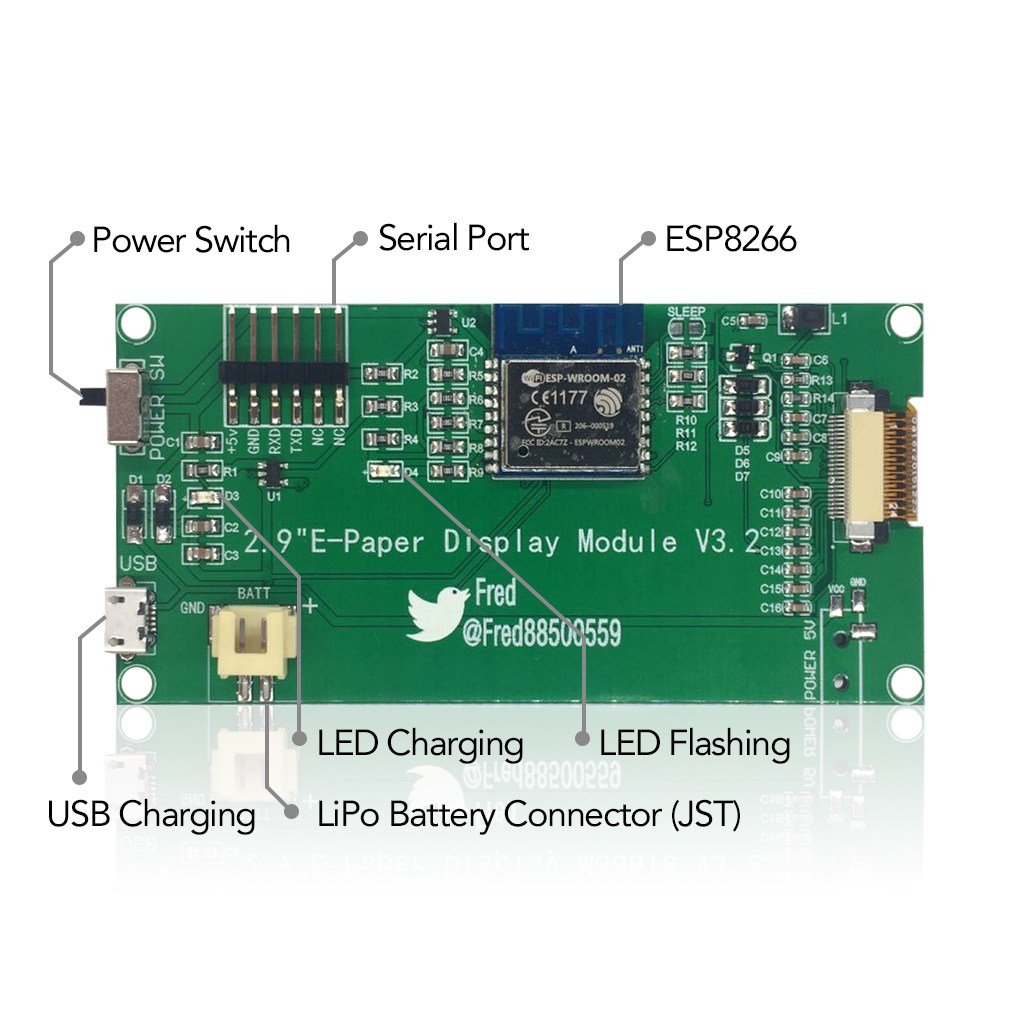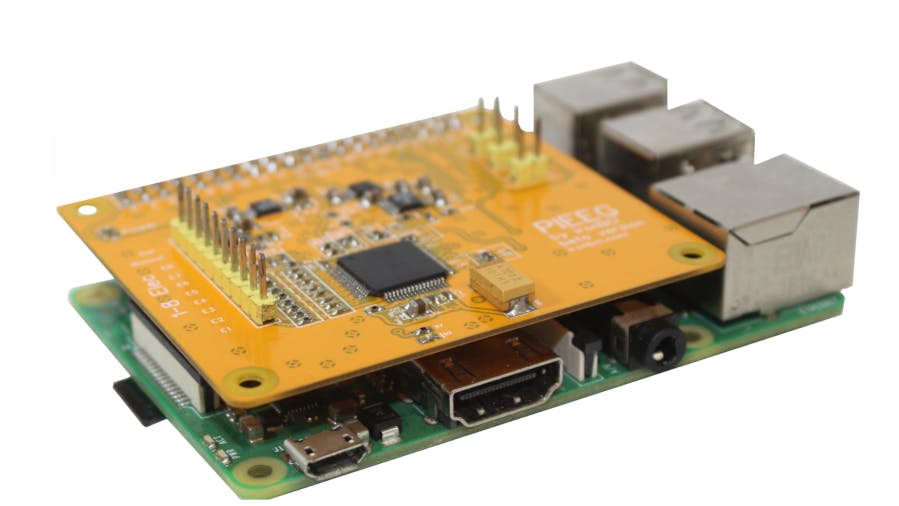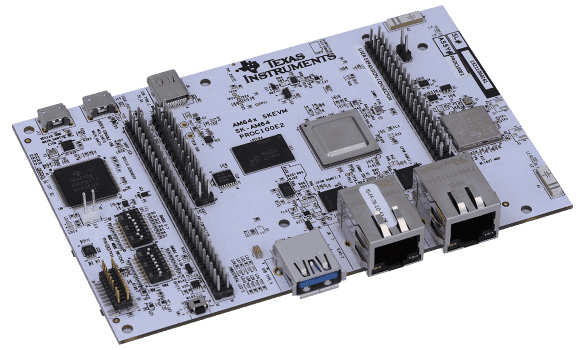
Texas Instruments’ new AM64x SoC Bridges Industrial Efficiency with Real-Time Control
Texas Instruments has recently unveiled their 16nm Sitara AM64x series of processors which offers up to 2x – A53, 4x Cortex-R5F, and a Cortex-M4F core for FuSa. Currently, TI is offering a $99 starter kit and a $299 evolution Module with Linux SDK support.
Regarding power and performance, the Sitara AM64x is less powerful than its predecessor, the AM65x. The AM65x features 4x 1.1GHz Cortex-A53 cores, 2x Cortex-R5F MCUs, a PowerVR GPU, and 6x real-time PRU chips. But it feature is power efficiency; with a 16nm process, this device runs on less than 2 Watts of power.
The Sitara AM64x is designed for industrial application and meets Functional safety (FuSa) requirements. This is achieved with an additional microcontroller within the AM64x. The 400MHz Cortex-M4F delivers FuSa. TI says this chip supports hardware integrity up to SIL 2, meeting IEC 61508 standards. The systematic capability extends up to SIL 3. As the Cortex-M4F is isolated, It has its own connections, GPIOs, reset button, protective barriers, and dedicated resources to function independently.
After carefully examining the $99 SK-AM64 starter kit and the $299 AM64x EVM board, we see that both kits offer a 40-pin Raspberry Pi-like connector. But the EVM kit provides an additional 4 lane PCIE and Onboard power-measurement capabilities and Three 1 GbE Ethernet ports.
In terms of capabilities, the AM64x is equipped with 2x 1GHz Cortex-A53 cores, 4x 800MHz Cortex-R5F cores, and 2x programmable real-time units (PRUs). Each PRU unit is built with 6x PRU_ICSSG RISC cores for a total of 12x cores. The PRU units can manage 4x GbE ports with time-sensitive networking (TSN) communications with IEEE 1588 precision time protocol (PTP). Additionally, this device also supports a 5th GbE port.
The AM64x also supports EtherCAT, PROFINET, EtherNet/IP, and other industrial protocols. However, while having some unique features, two specific models, the AM6412 and the AM6411, do not support a fast communication method used in industries.
The device offers external LPDDR4 and DDR4 memory support via a 16-bit bus. Other features include tightly coupled memory (TCM) cache banks, SRAM partitioning, and data movement subsystem service (DMSS).
Other features include industrial Ethernet peripherals (IEPs) for time stamping and synchronization, as well as 18 sigma-delta filters, 6x multi-protocol position encoder interfaces, and enhanced PWMs.
The AM64x microprocessor comes with a range of additional peripherals, including PCIe Gen2, USB 3.1 dual-role, multiple UART, SPI, and Fast SPI interfaces, along with several GPIO and CAN interfaces. In the provided block diagram, you can see these features laid out. The System on Chip (SoC) also incorporates a Power Management Integrated Circuit (PMIC) and robust security features. These security features comprise a cryptography engine, a Hardware Root of Trust, and Trusted Execution Environments (TEEs) based on Arm’s TrustZone technology.
SK-AM64 starter kit with Linux SDK
The $99 SK-AM64 starter kit has a Linux SDK with a mainline Long-Term Support (LTS) Linux kernel and Yocto file system.
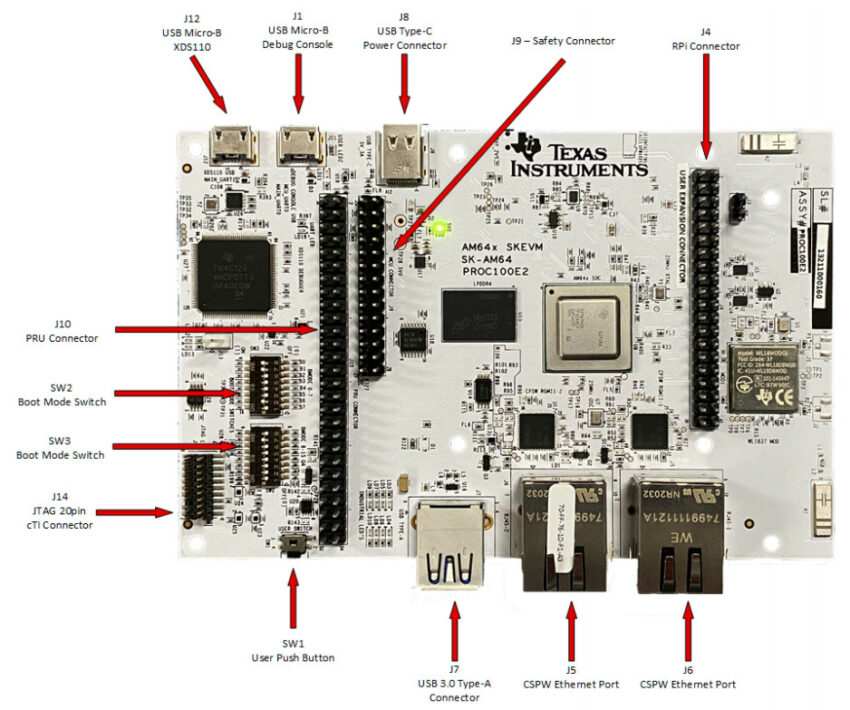
The starter kit will be shipping at an undisclosed AM64x model with 2GB of LPDDR4 RAM and a MicroSD card slot. Additionally, we will have 2x GbE ports, a USB 3.0 port, and a USB Type-C port for power. There are also these two micro-USB ports, one for debugging.
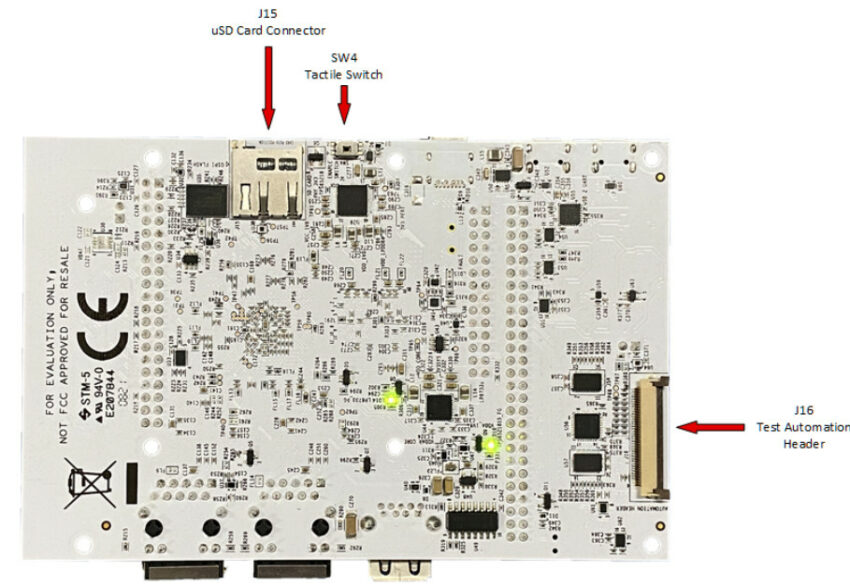
The SK-AM64 has a 40-pin GPIO connector compatible with Raspberry Pi HAT, alongside two additional expansion connectors. The first is a 54-pin PRU connector featuring a PRG0 interface, and the second is a 28-pin MCU “safety” connector. It includes features like two pushbuttons, two boot switches, a 20-pin JTAG connector, a test automation header, and an XDS110 emulator.
The SK-AM64x EVM kit with Linux SDK
The $299 AM64x EVM kit has the AM6442 plus CPU 2GG of LPDDR4 RAM, 16GB of eMMC memory, and an additional MicroSD card slot. Other features include a 3x GbE port, a PCIe x4 connector, 3x micro-USB ports, dual CAN headers, and an FSI connector.
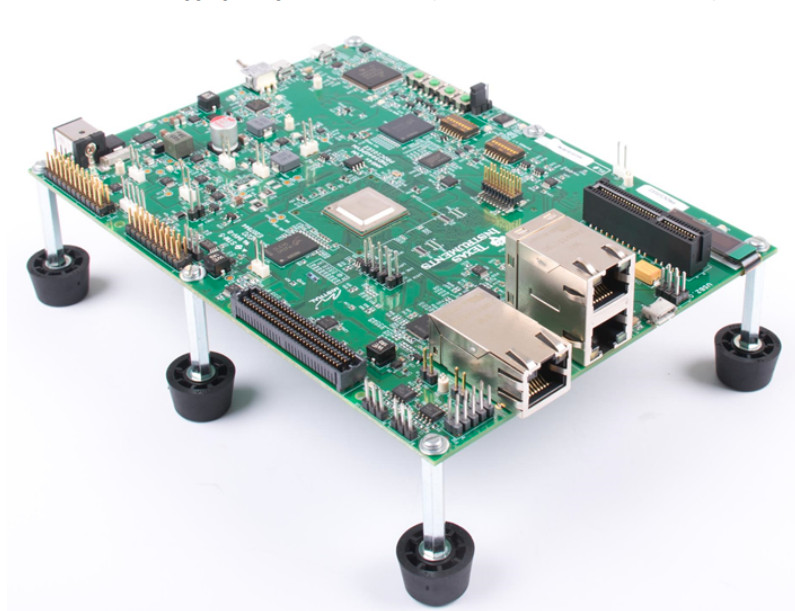
The EVM kit can be powered by a 12V power source and comes with an additional 60-pin MIPI connector, JTAG, and an OLED display. Additionally, it has onboard current measurement functionality and other features, various reset options, buttons, and boot-mode switches.
Other than the official board, other OEMs are producing their own evolution and dev board based on the AM64 architecture, among which the TQ Embedded TQMa64xx module Phytic Embedded PhyCore-AM64X and SolidRun embedded AM64x SOM are significant.
The samples of the eSitara AM64x are available with a $99 SK-AM64 AM64x starter kit and the bigger and more powerful AM64x EVM kit. Additional details can be found in the announcement post on TI’s blog, which provides links to all five product pages as well as the AM64x datasheet.





